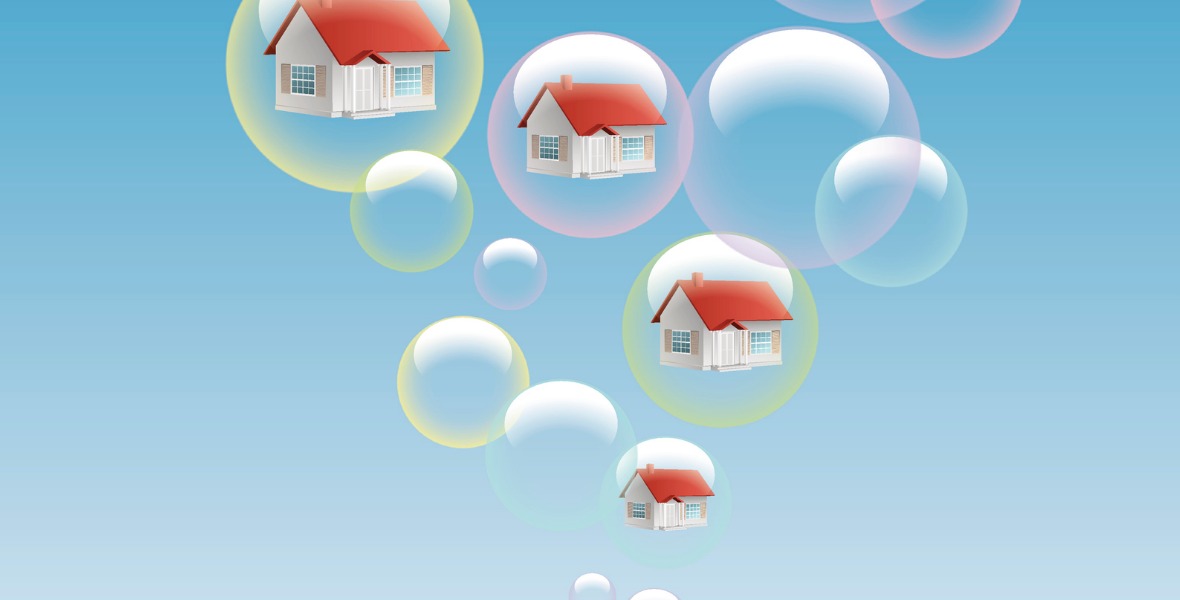Today we're releasing a new report featuring my analysis of last year's real estate bubble - why it happened and how it affected home buyers and sellers in Toronto and the Greater Toronto Area (read full report here).
I think this type of analysis is important because I'm frustrated when I hear, particularly from industry voices, that 'no one saw this coming' and the suggestion that consumers were hurt due to 'bad luck.' While it may be impossible to predict the market perfectly, it is possible to track it carefully to help consumers make better real estate decisions - and analysis has enabled us to better advise our buyer and seller clients on how to avoid the negative outcomes experienced by other consumers during last year's volatility.
I'm also frustrated that some, particularly
Here are the highlights:
- The Toronto real estate market started 2017 with prices up 34% in March over the previous year, then saw prices tumble 18% in just four months when the bubble burst.
- In spite of arguments from the real estate industry that Toronto’s housing bubble was driven by supply-side constraints, the data suggests otherwise – a closer look at population growth and new construction figures relative to the period in question do not suggest a likely explanation.
- On the other side of the equation, the Greater Toronto Area (GTA) saw a surge in demand beginning in 2015, with sales up 29% above the GTA’s ten-year trend by 2016, with evidence to suggest that speculative investment activity played a significant role.
- During the first quarter of 2017, investors accounted for at least 16.5% of all purchases of low-rise houses in the GTA, a 65% increase year-over-year. Increases differed greatly within the GTA, with York Region’s Newmarket and Richmond Hill accounting for the highest level of investor activity at 34% and 28%; in 2012, such activity was 7% and 9%.
- Examination of the data suggests that investors were comfortable buying and renting out homes with rent yields that did not cover monthly carrying costs due to their speculation that rising capital appreciation would offset any such losses; rates of negative monthly cash flow varied across the GTA with Richmond Hill and Markham at the high end with an average loss of $2,488 and $2,444 and Oshawa and Ajax at the lower end with an average loss of $594 and $644.
- Demand fell significantly during the second half of 2017, due to worsening affordability and the introduction of a foreign buyer tax, and the market saw a rapid decline of prices from a median price of $765,00 in March to $626,000 in July, a decline of 18% in four months, faster than the declines seen in the U.S. housing crisis which began in 2006.
- At least 988 households were directly affected by the collapse of GTA home prices, with an estimated $135 million in market value lost in 135 days, resulting in these consumers suffering immediate financial losses and incurring the risks of lawsuits. This figure includes 866 properties that were sold to buyers unable to complete transactions after prices fell which were subsequently sold for an average of $140,200 less; areas that saw the highest level of investor activity saw the highest level of losses with York Region’s Richmond Hill and Newmarket declining $317,091 and $238,866 respectively. These figures only include properties that we were able to assess directly; hundreds more are likely to have been negatively affected.
- Prices in the GTA did not continue to decline as they did in the U.S. housing crises,
instead levelling out by July 2017 with experts predicting a price plateau in the months to come.
- The negative impact of the bubble has not been confined to directly affected consumers – housing affordability, already a challenge in the
GTA, has been worsened with average prices in the GTA at 28 times annual rents by the end of 2017, less affordable than San Francisco, Los Angelesand New York.
I hope you find this analysis useful - please get in touch if you have any questions or feedback.
John Pasalis is the President and Broker of Realosophy Realty Inc. Brokerage in Toronto. A leader in real estate analytics and pro-consumer advice, Realosophy helps clients buy or sell a home the right way.




